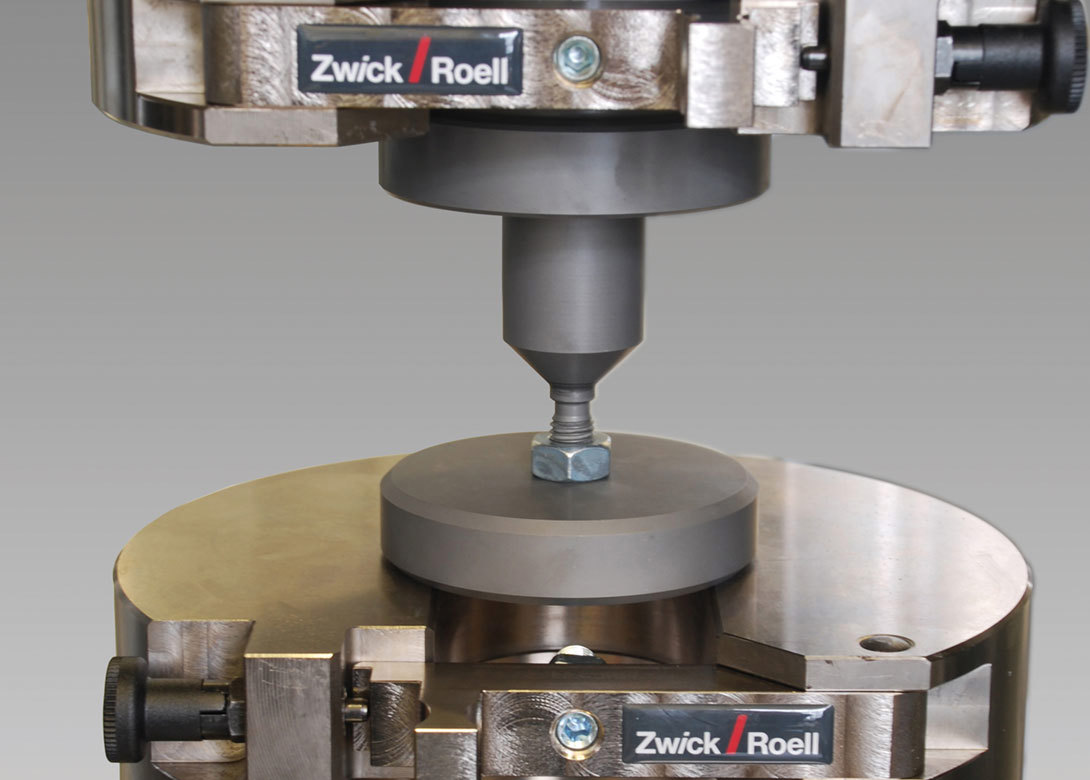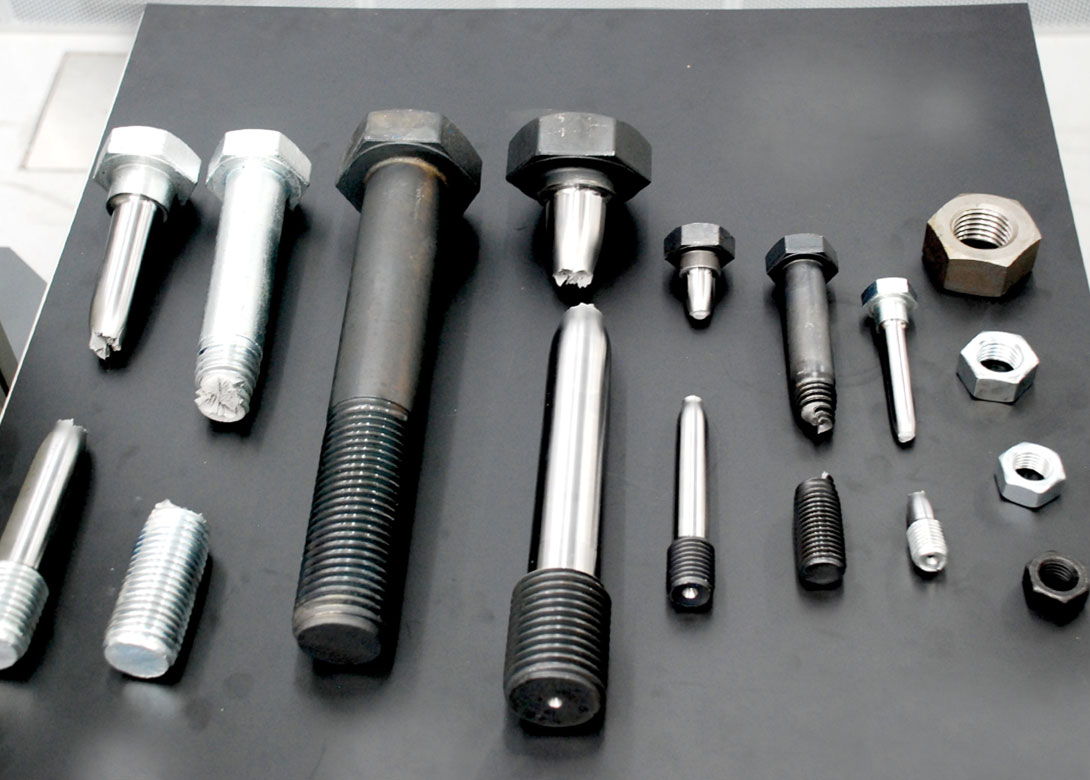
By Alan Thomas, marketing, ZwickRoell Ltd
High force capacity testing machines are used by global manufacturers of fasteners in the development of new products and to maintain ongoing product quality. In addition to highly accurate and repeatable test results, it is crucial that the testing machine and software offers simple and efficient operation.
The testing of screws with threads up to M39 is defined by the ISO 898-1 standard. For threads larger than M39 (Fmax > 1,200kN), ZwickRoell offers proven testing solutions based on ISO 898-1. The various test methods specified in the standards are already pre-programmed in the testXpert III testing software. Also, the minimum break forces required by the standard are stored in the testing software and are compared to the test results, enabling efficient and reliable testing. To assist with gripping the specimen in the testing machine, self-aligning tension grips with head mountings and threaded mountings are used, which ensures compliance with the minimum test specimen length prescribed in the standard.
For performing strain measurement on screws, a makroXtens extensometer can be used. The sensor arms can remain on the specimen until after break – whereby an automatic determination of strain at break is possible.
When combined with the corresponding mandrel and die, the self-aligning tension grip can also be used to perform proof load tests (tensile and compression tests) on nuts according to ISO 898-2. The nut is loaded to the force specified in the standard and maintained for 15 seconds. The nut is considered to have passed the test if it can be twisted off manually from the mandrel.
In addition to tensile tests, hardness tests are also a part of quality assurance for fasteners, with Rockwell or Vickers testing being commonplace and conducted on universal hardness testing machines.
In addition to static loads, fasteners in their service environment are often subjected to cyclic loading, including vibrations. Fatigue tests on screws are most quickly and efficiently performed in a Vibrophore machine, which can apply cyclic loads with a maximum force of up to 1,000kN in a frequency range up to approximately 300Hz, using grips designed specifically for screws and other fasteners. The Vibrophore magnetic drive, which generates controlled resonance in the system, including the specimen, requires minimal power during this test, resulting in a highly cost-effective testing capability.
Johann Maier, a German manufacturer of high performance fasteners, relies exclusively on sophisticated manufacturing processes such as hot forging, heat treatment and thread rolling. These processes ensure the products have optimum mechanical and functional properties. Johann Maier vouches for their quality, thanks to meticulous destructive and non-destructive testing procedures. In order to guarantee maximum quality, the highest degree of precision and the complete safety of its products, the manufacturer has to rigorously test them.
After inspection of the chemical composition the manufacturer uses static and dynamic test machines, as well as various kinds of hardness testers, to evaluate and guarantee mechanical material and component properties. Selection of the type of hardness test is often influenced by end-customer requirements, as hardness measurements are commonly reported values on specification sheets accompanying the delivery of manufactured goods.
The ZwickRoell universal testing machines – with highly sophisticated testing software – cover the complete range of forces for testing high performance fasteners and bolts. The required hardness tests are performed with a ZwickRoell universal hardness tester. Their combined testing capability ensures they achieve reliable test results, which are essential to satisfy the needs of the aerospace and motorsports industry sectors.


Biog
Will joined Fastener + Fixing Magazine in 2007 and over the last 15 years has experienced every facet of the fastener sector - interviewing key figures within the industry and visiting leading companies and exhibitions around the globe.
Will manages the content strategy across all platforms and is the guardian for the high editorial standards that the Magazine is renowned.








